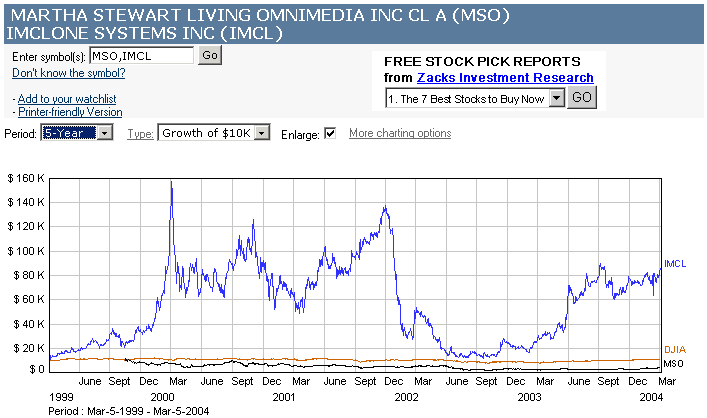Many note the irony that Martha Stewart had only $52,000 at stake in her Imclone investment, yet her insider trading scandal destroyed billions of dollars in shareholder value in her own company. Yesterday alone, after the verdict, the value of Martha's shares in Martha Stewart Omnimedia fell $100 million. People are delighting -- or fretting -- over her potential time in prison. Martha may be more worried about the likely loss of her personal fortune than her prison term. Her company's products are based on the very image of Martha; can it reinvent itself sans eponymous founder?

And in the "truth is stranger than fiction" category, the FDA approved the drug Erbitux for treatment of certain cancers on February 12, 2004 -- during Martha's trial. That's the very drug that the FDA disapproved in December 2001, leading to the insider trading. The made-for-television movie will have fun with that.
Another layer of irony: Imclone stock plummeted when the scandal broke, but has done quite well since then. I ran a Quicken.com stock chart comparing what you'd have today if you'd invested $10,000 in each company five years ago -- an interval covering the entire lifespan of Martha Stewart Omnimedia. Eyeballing it, it looks like if you'd placed a $10,000 bet on Imclone the day of the MSO IPO, you'd have $40K today. It looks like MSO stock never rose enough for you to cash out ahead. In fact, MSO was never ahead of the Dow Jones average.
Just wait until Monday, when reality sets in: MSO is so closely identified with Martha Stewart, this company is doomed.